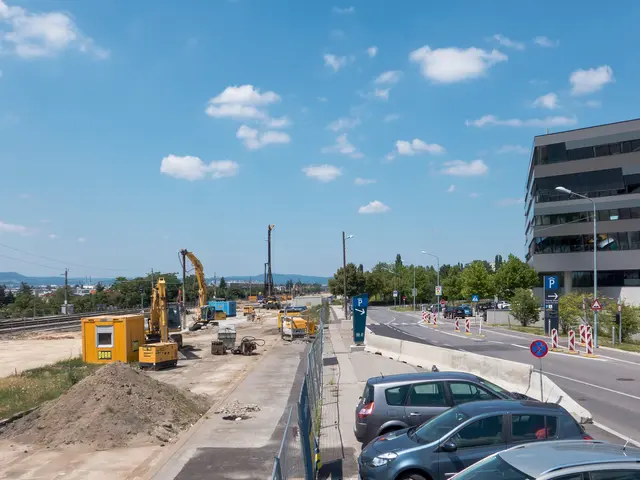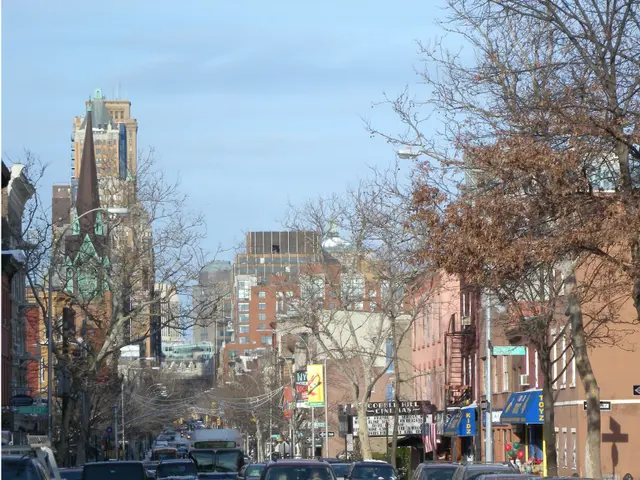Socialist Digital Utopia with Zero Carbon Emissions: A Preview, Unless Resistance Arises
===================================================================================================
In a hypothetical scenario, the implementation of the Green New Deal could lead to a dystopian society where individual aspirations and family bonds are eroded by constant government intervention and an economy that no longer works for the people. This is not just a figment of imagination, but a reality that can be observed in several contexts.
The Venezuelan economic crisis serves as a stark example of how government control and socialist policies can lead to scarcity and dependency. The government's nationalization of key industries, such as oil, and its dependency on oil revenues led to economic instability when global oil prices fell. This resulted in severe shortages and inflation, effectively creating a cycle of dependency on state-controlled resources.
Similarly, in some Israeli kibbutzim, economic difficulties led to reduced support for socialist ideologies and a shift towards market-based economic systems. Despite efforts to recover from the crisis, the shift towards market-oriented policies further moved attitudes away from socialism, illustrating how economic hardships can undermine socialist systems.
Even in the Nordic countries, discussions around the degrowth movement highlight the tension between economic growth and socialist ideals. The argument that abundance already exists and that redistribution is the key often leads to debates about the role of government intervention and the potential for dependency on state-managed resources.
In this dystopian society, the basic human needs of freedom and dignity have been sacrificed. The state dictates every aspect of life, from water usage to home heating, and each family is allotted a minimal amount of energy and water. Any attempt to exceed these limits results in harsh penalties. Neighbors are encouraged to inform on one another, with rewards for reporting violations and penalties for those caught breaking the rules.
The government's grip on power has turned the Green New Deal into a dystopian nightmare. The state has taken control of children's education, indoctrinating them into the government's climate ideology. Digital IDs and digital payment systems have become tools of control, allowing the government to punish dissent and those who violate its strict laws. The state has established a force of "climate police" who enforce these draconian laws.
The dream of a better future has been overshadowed by a government that wields unchecked power. Survival, not thriving, is the only option in this regime. Fear, control, and deprivation are the norm. This is not the utopia promised, but a dystopia born out of good intentions gone awry.
References: 1. The Green New Deal: A Dystopian Nightmare? 2. The Degrowth Movement and the Tension between Economic Growth and Socialist Ideals 3. The Economic Crisis in Israeli Kibbutzim: A Case Study in the Failure of Socialist Ideologies 4. The Economic Crisis in Venezuela: A Case Study in the Failures of Socialist Policies 5. The Impact of Global Oil Prices on Venezuela's Economic Crisis
Read also:
- Germany's three-month tenure under Merz's administration feels significantly extended
- United Nations Human Rights Evaluation, Session 45: United Kingdom's Statement Regarding Mauritius' Human Rights Record
- Hurricane-potential storm Erin forms, poised to become the first hurricane in the Atlantic Ocean this year.
- Amidst India's escalating climate crisis, transgender individuals continue to persevere.








